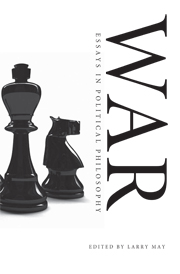Introduction
Published online by Cambridge University Press: 05 June 2012
Summary
Philosophers have written about war for as long as there have been philosophers. Indeed, the pre-Socratic philosopher Heraclitus (c. 502 b.c.), from whom we have only a few scattered words remaining, talks about war and uses war as his main analogy to understand all other relations. Since ancient Greek times, nearly every major philosopher has had something to say about war, and many have written special treatises on the topic. There are several obvious, and several not so obvious, reasons why philosophers have been intrigued by war. Most obviously, many lived during times of war and war tends to color every part of one's experience. War is also the kind of experience that calls out for attempted justification, given the sheer amount of horror that often accompanies it. And war also offers considerable puzzles to be solved, such as why the killing of soldiers in war could be condoned but seemingly lesser offenses such as mistreating soldiers who have been captured would be so strongly condemned.
Perhaps more subtly, war has intrigued philosophers because the morality of war is thought to be special and somehow different from the morality of normal life. And this has also caused a reexamination of whether it is indeed true that death is the worst of harms that can befall an individual person. The issue of war has also inspired philosophers to think about collective action (and the metaphysics of groups) in ways quite different from individual action.
- Type
- Chapter
- Information
- WarEssays in Political Philosophy, pp. 1 - 8Publisher: Cambridge University PressPrint publication year: 2008
- 1
- Cited by

